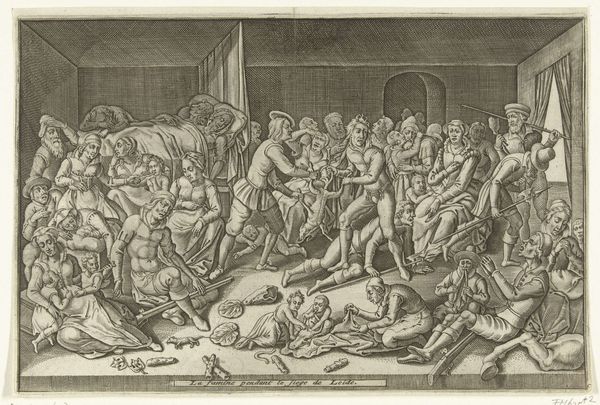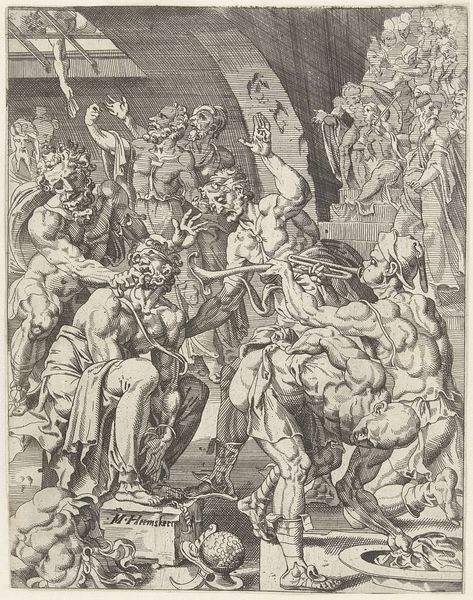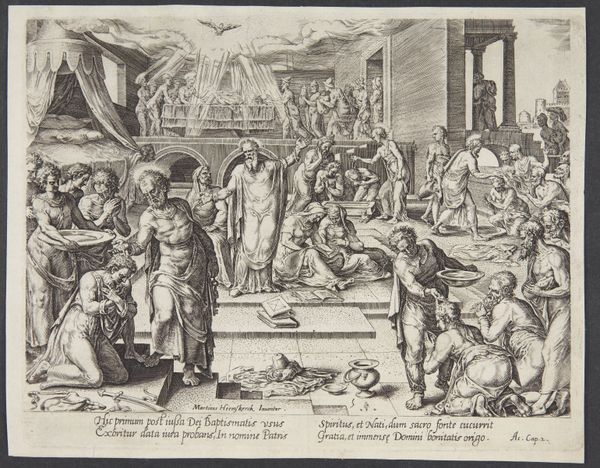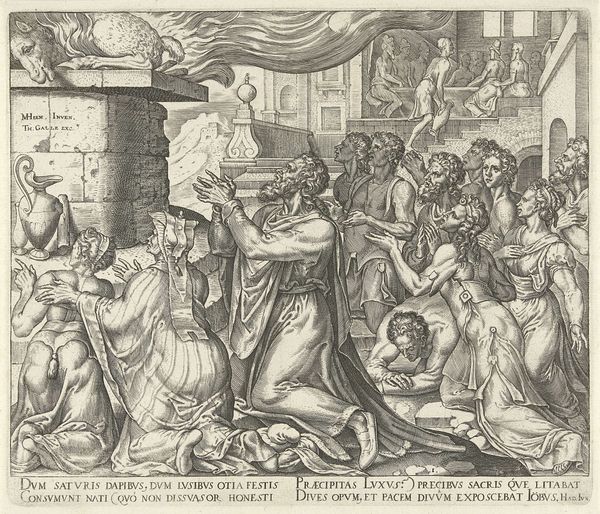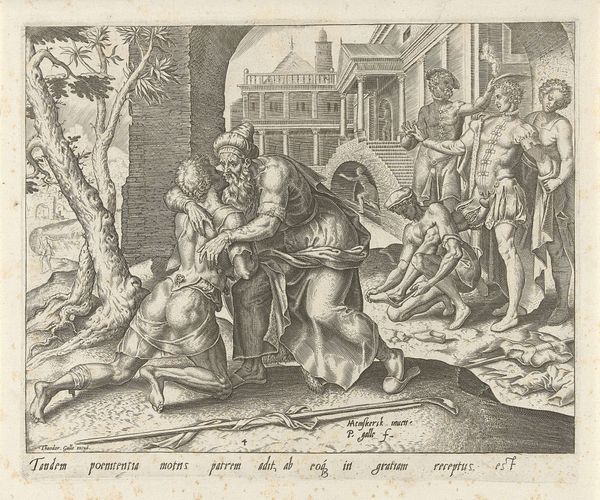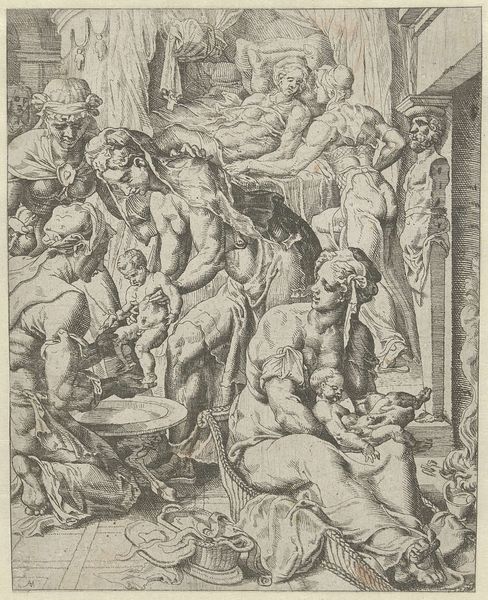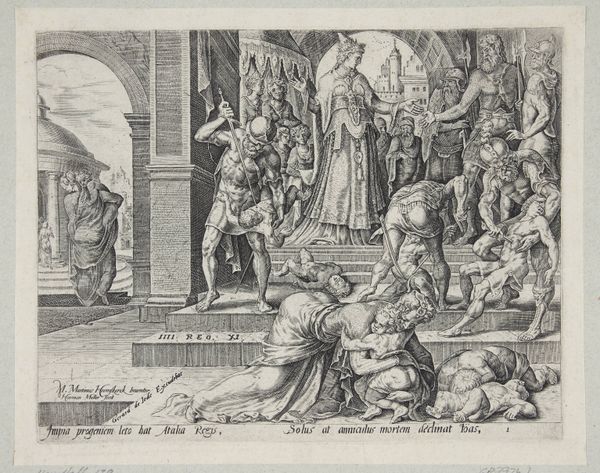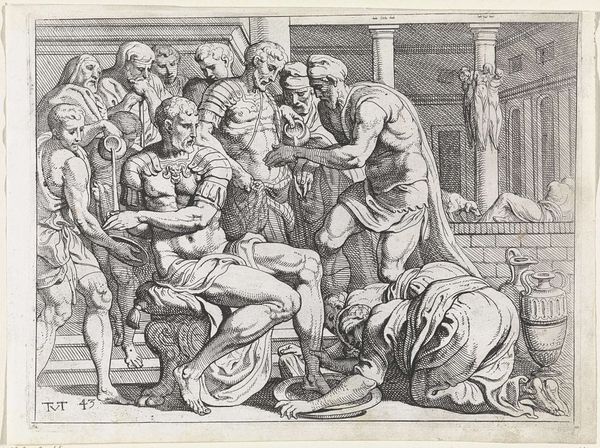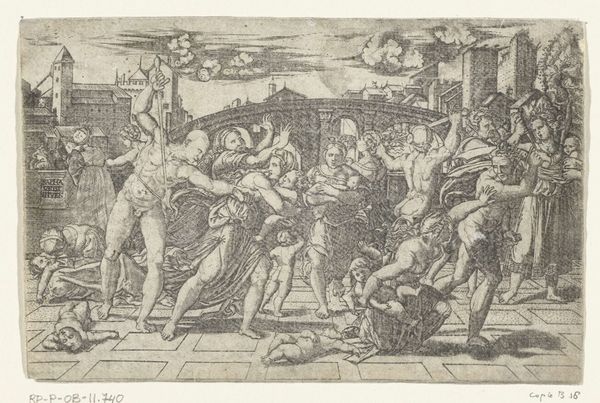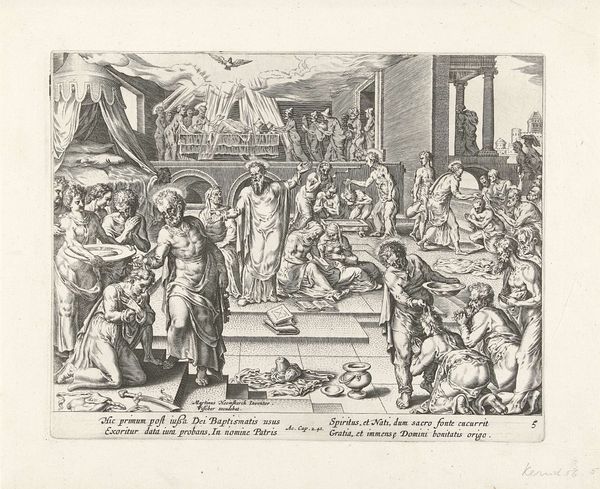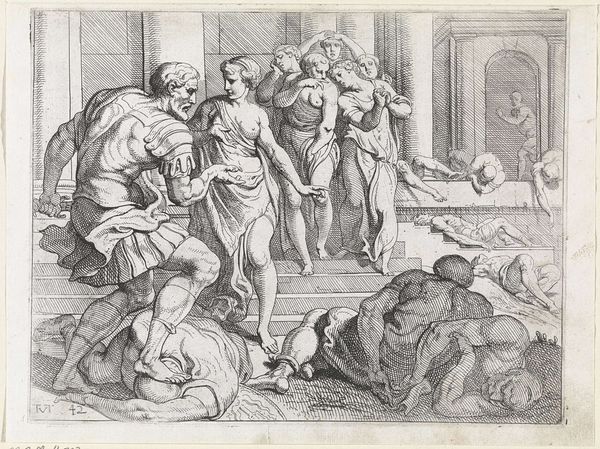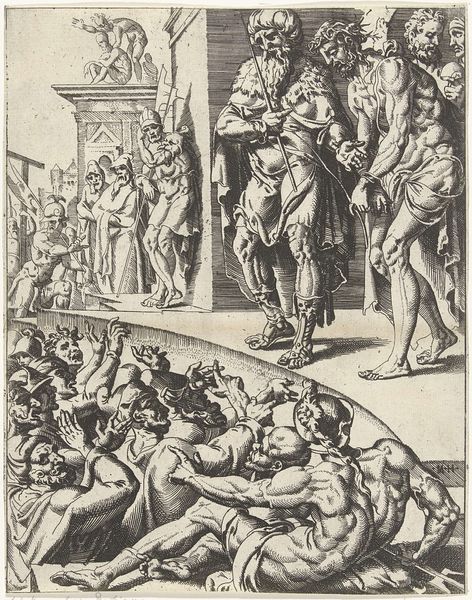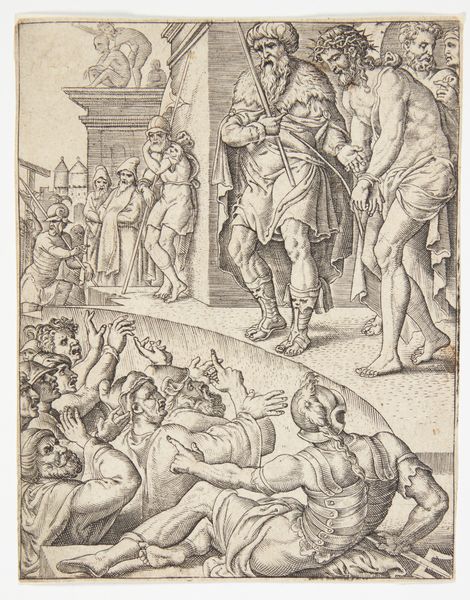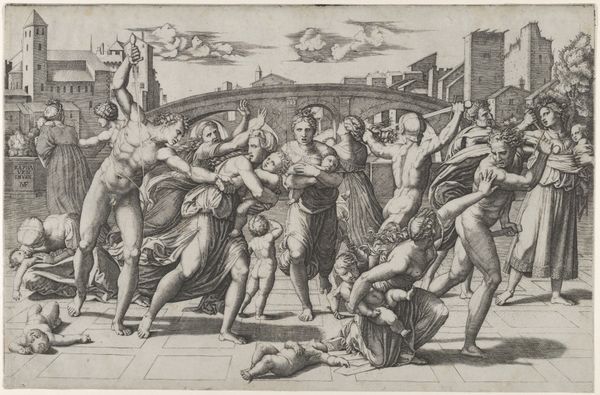
print, intaglio, engraving
#
pen drawing
#
mechanical pen drawing
# print
#
pen illustration
#
pen sketch
#
intaglio
#
old engraving style
#
figuration
#
11_renaissance
#
pen-ink sketch
#
history-painting
#
engraving
Dimensions: height 297 mm, width 405 mm
Copyright: Rijks Museum: Open Domain
Dirck Volckertsz Coornhert made this engraving, "Paulus doopt de inwoners van Efeze," with ink on paper in the late 16th century. The most important thing to understand about an engraving like this is that it is fundamentally a reproductive medium. Engravers like Coornhert weren't necessarily inventing images themselves; they were disseminating the inventions of others. The key tool here is the burin, a hardened steel rod with a sharply angled point. By pushing this tool through a copper plate, and then inking and printing the plate, an engraver could achieve very fine detail and a wide range of tonal effects. The material quality of the print— the stark contrast between black ink and the white paper, the fineness of the lines, and the overall scale— all contribute to the sense of controlled precision. Prints such as this one were an essential technology for circulating artistic ideas, and for building the reputations of artists across Europe. Coornhert's skillful manipulation of line and tone demonstrates how printmaking elevated mere reproduction to a highly skilled craft.
Comments
No comments
Be the first to comment and join the conversation on the ultimate creative platform.
